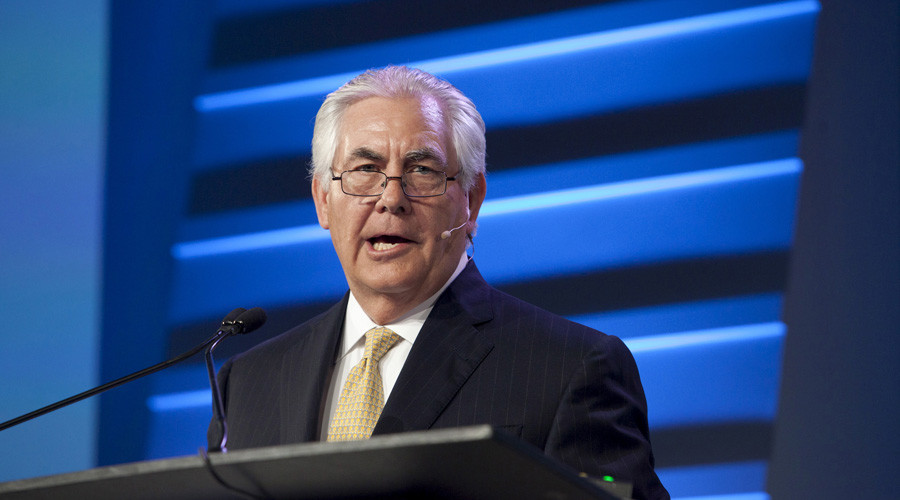If the ExxonMobil CEO is confirmed as the new U.S. Secretary of State, the evolving relationship between Russia and the United States will take an interesting turn. Rex Tillerson could be in a position to hand his former company a major victory if he helps orchestrate a removal of U.S. sanctions on Russia.
The close ties between Exxon’s Tillerson and the Kremlin – and Russian President Vladimir Putin specifically – have raised concerns in a few corners of Washington, which could complicate Tillerson’s nomination. While some Democrats are outraged that the CEO of one of the largest oil companies will be put in charge of U.S. international climate policy, many more have suddenly taken up an anti-Russian stance to oppose Tillerson’s nomination, likely in order to land a blow against Trump. Hawkishness against Russia is typically the purview of the Republican Party, and indeed a handful of hawkish Republicans are uncomfortable with the Trump administration’s, as well as Tillerson’s, willingness to countenance a better relationship with Russia. But they will probably get over it.
Nevertheless, putting Tillerson at Secretary of State does present some questions over conflict of interest. After all, Tillerson could be instrumental in removing sanctions on Russia, which would be a highly favorable outcome for ExxonMobil, where Tillerson has worked for his entire 41-year career.
It may also benefit Tillerson personally. Tillerson may still hold onto huge stock holdings in Exxon, which due to a variety of complicated tax rules, may be difficult to unload. Fortune gives a good rundown of the situation with Tillerson’s stock, which raises the possibility that Tillerson doesn’t sell off his positions in the company before becoming Sec. of State. He may have to wait years before he can get his hands on what is valued today at well over $200 million in stock. But if he does that, he is opening up a massive conflict of interest. The State Department, which he will run, will have enormous influence over U.S. foreign policy that could affect the oil industry, and thus, his personal fortune. He will be in charge of negotiations over war and peace, which often affects the fortunes of oil companies in the Middle East. He will also be able to arm twist foreign leaders over access to oil and gas reserves.
